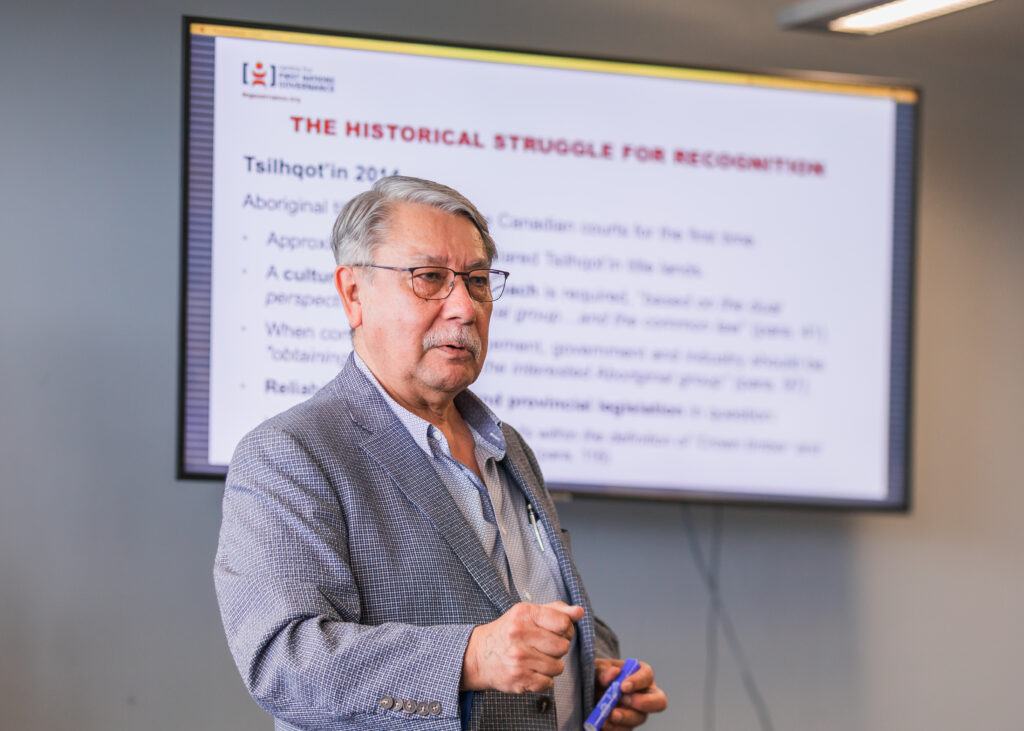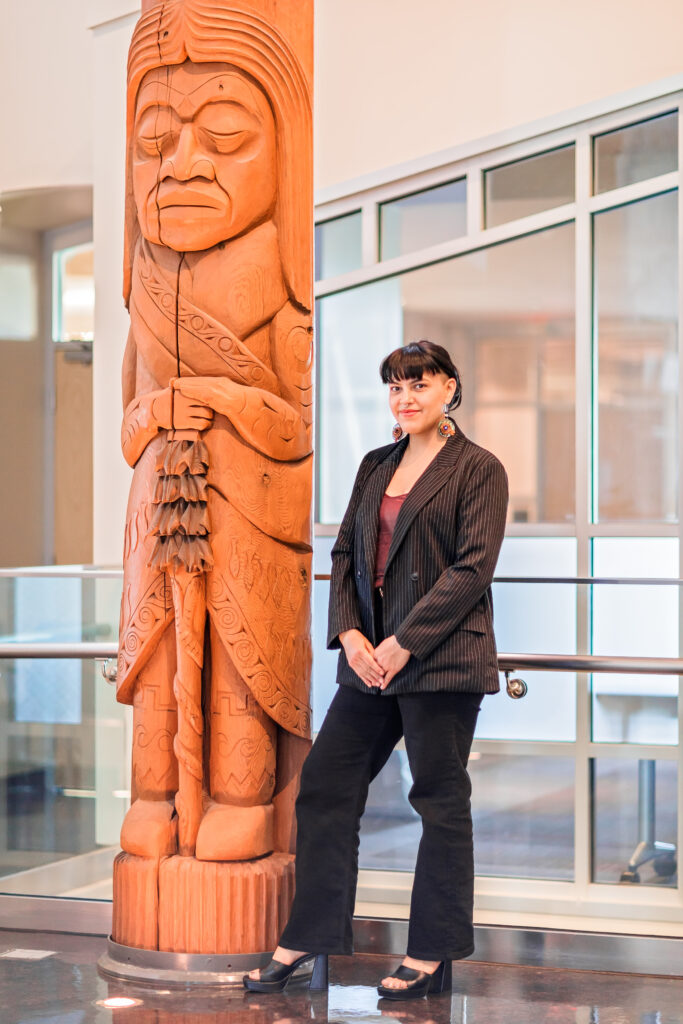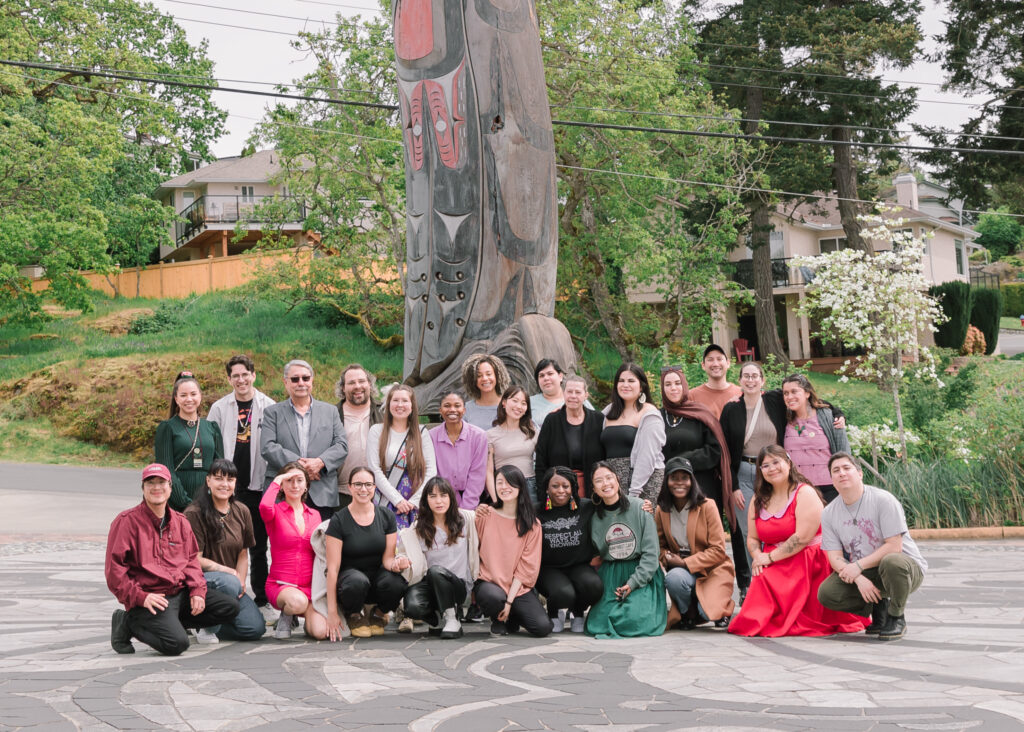In May, after three months of online sessions, the YPP cohort finally met in-person for the first time! They gathered in Victoria to learn about Indigenous governance and attended several talks on the traditional territory of the Songhees First Nation.
Wet’suwet’en hereditary chief Satsan (Herb George) gave a presentation about Indigenous self-governance. He talked about recognizing the value of Indigenous knowledge and perspectives, as well as how his personal history helped him in his career. Satsan played a key role in the Delgamuukw v. British Columbia Supreme Court of Canada decision in 1997, which ultimately ruled that Aboriginal title exists through traditional clan governance and oral histories.
Satsan reflected on when he was born and raised, thinking about the impacts of colonial policies on Indigenous communities.
“I was born in the midst of total social chaos in my community, where you’ve seen the effect and impact of the Indian Act and residential schools coming to its boiling point,” he said. “And as a young person seeing all this, wondering ‘What’s going on here? This is not right.’”

He says that has shaped his work in reconciliation between Indigenous people and Canada.
“We need to get the young people involved,” he said. “It’s going to take generations to do, and we need to begin this whole procedure by being able to talk to one another with recognition and respect for one another.”
YPP participant Shelby-Lynn Soney, who is Mohawk and Ojibwe, studied First Nations and Indigenous Studies. She said meeting Satsan was inspiring.
“I’ve always heard about it [the Delgamuukw v. British Columbia decision] and so meeting one of the people who were involved with creating that, pushing that forward, was really impactful,” Shelby-Lynn said.

Satsan’s presentation made her think about the different ways in which policy work comes about.
“I know that a lot of these changes didn’t happen overnight; it wasn’t like one big thing,” Shelby-Lynn said. “They were talking about the oral history, working with different communities and different stakeholders, and having to get all these different things together to push the case forward.”
The presentation encouraged Shelby-Lynn to think of her own policy work and her own communities.
“How could we work with other communities to bring them forward? Because it’s going to affect all of us in different ways. Even collaborations between Indigenous communities and non-Indigenous communities, I think there’s a lot of overlapped ways that we can work together,” said Shelby-Lynn.

YPP participant Savannah Sutherland said she was inspired by how Indigenous folks got their traditional knowledge and stories recognized.
“This was helpful in developing my own understanding of the world, shaping my own personal values. This information that I learned today, and the thoughts and feelings that I’m having, I think I’ll carry them with me beyond doing policy work,” said Savannah.
Savannah also reflected on the interconnectedness of social justice struggles.
“I’ve always liked the saying ‘None of us are free until all of us are free’, and I think that this presentation [Satsan’s] really cemented in my mind the importance of Indigenous people and their fights for sovereignty, and the work that they are doing to achieve that.”
In the next module, the cohort will learn about storytelling and how that shapes policy. Follow us on Instagram @level_vf to learn more.
